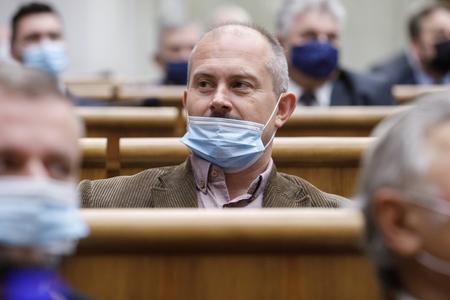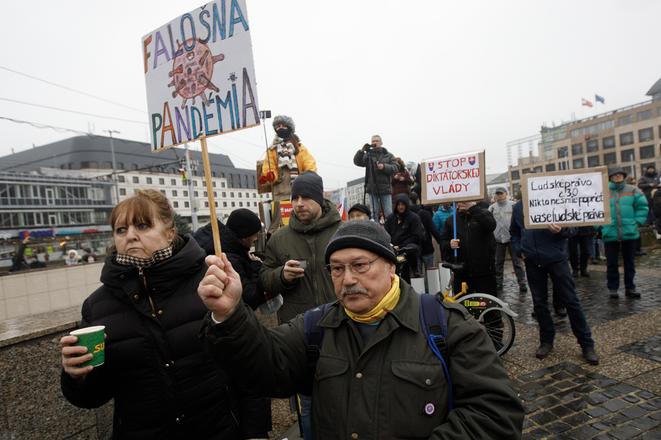The coronavirus pandemic has highlighted a deep-rooted problem with disinformation in Slovakia, experts have said, as new surveys suggest a large portion of the population believe in coronavirus conspiracies.
When thousands of people took to the streets in an anti-government protest in Bratislava on December 12, TV pictures and photos from the scene showed many demonstrators without masks, and people carrying signs with slogans reading “fake pandemic” and “stop forced vaccination against COVID-19”.

The protest was organised by the far-right opposition People’s Party Our Slovakia (ĽSNS), whose members have publicly claimed the coronavirus is not real and spread COVID-19 conspiracy theories and hoaxes on social media during the pandemic.
Pictures from the protests, and other demonstrations in recent weeks, did not surprise disinformation experts.
“Footage from these protests confirm that their organisers and participants have been eating the same ‘mental food’ that has been served by disinformation media for a long time,” Tomáš Kriššák, analyst and expert on disinformation at the Open Society Foundation, told The Slovak Spectator.
Kriššák and other experts on disinformation say that while the rise of conspiracy theories are a global phenomenon, Slovaks are particularly susceptible to misinformation, and that the pandemic has highlighted, and intensified, the problem.
Putting chips in people and fake deaths
Victor Breiner, director of the Infosecurity.sk platform, said that before the coronavirus crisis, only a handful of experts had raised the alarm about the extent of Slovakia’s disinformation problem.
“But after the outbreak, it was more than clear that we were all facing a problem,” Breiner told The Slovak Spectator.


 "Fake pandemic" (source: SITA)
"Fake pandemic" (source: SITA)